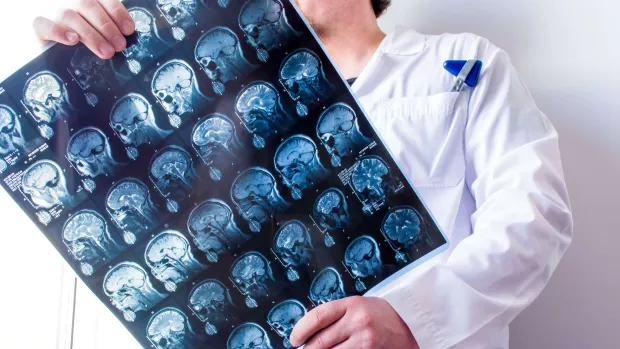
Minocycline
Minocycline (also known as minocin) is an antibiotic therapy used to treat acne or bacterial infections. It’s being developed for people with relapsing MS and people diagnosed with clinically isolated syndrome.
- Current phase of trial:
- phase 3
- Type of MS:
- Relapsing MS and Clinically isolated syndrome (CIS)
Find out more about minocycline
How does minocycline work?
Minocycline is commonly used to treat bacterial infections including acne, respiratory and urinary tract infections. Minocycline is in a class of medications called tetracycline antibiotics.
It works by preventing the growth and spread of bacteria. Recent studies have demonstrated it has anti-inflammatory properties. This could be helpful in preventing the inflammation which causes damage to the brain and spinal cord in MS.
How is minocycline taken?
Minocycline is taken as a tablet, twice daily.
Latest research
Phase 3 trial - minocycline in early MS
A phase 3 clinical trial is aiming to recruit 148 people who've had the first symptoms suggestive of MS within the previous 6 months. They must have at least two areas of inflammation in their brain.
Participants will be asked to take minocycline twice daily for up to 2 years.
Researchers will follow them for up to 2 years to see how many of the participants go on to be diagnosed with MS.
Read more about the phase 3 clinical trial
Phase 3 trial – clinically isolated syndrome
A phase 3 clinical trial, called the MinoCIS trial, finished in 2017. The trial involved of 142 people who've had a first episode of clinically isolated syndrome (CIS) suggestive of MS. The participants were split into two groups: one group took 100mg minocycline orally for 24 months and the other group took a placebo (dummy drug).
The aim of the trial was to determine whether taking minocycline could reduce the number of people who went on to be diagnosed with MS.
The researchers concluded that the risk of conversion from CIS to MS was significantly lower with minocycline compared to the placebo over 6 months, but not over 24 months.
Earlier research
Phase 2 trials
A phase 2 trial tested minocycline as an add-on therapy to the licensed treatment Copaxone in 40 people with relapsing MS. Results were published in 2009 indicating minocycline reduced new lesion development by 60%.
A second phase 2 trial that involved 305 people with relapsing MS was terminated in 2011. Researchers found that adding minocycline to beta interferon treatment had no benefits. It's worth noting that the study had a high dropout rate, which made it difficult to fully analyse the results. It was not recommended that new studies tested this combination.
What are the side effects of minocycline?
Common side effects in people treated with minocycline include:
- diaorrhoea
- dizziness or light-headedness
- grey discoloration of the skin or tissue in the mouth including the teeth
- sun sensitivity
- fungal infections.
How does it compare with current treatments?
Minocycline has only been trialled as an add-on therapy, and has not yet been directly compared with other MS treatments.
When is it likely to be available?
Minocycline is currently licensed for other conditions but is not licensed for MS.
If the phase 3 trial is successful, it may be necessary to carry out further studies to assess the effectiveness of minocycline in larger numbers of people.
Positive trial results can only make a real difference to people with MS once a regulator like the European Medicines Agency concludes there's sufficient evidence the drug is safe and effective.



